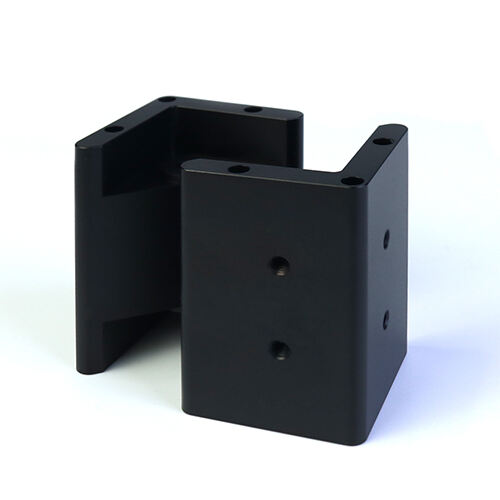Customized machining servo milling opens up a new era of precision manufacturing
Revolutionizing Precision Manufacturing: Customized Processing Servo Milling Opens a New Era
The future of precision manufacturing is here, and it’s powered by Customized Processing Servo Milling. This cutting-edge technology is transforming industries by offering unparalleled precision, speed, and customization like never before. With servo-driven motors at the heart of the process, manufacturers can now achieve micron-level accuracy for the most complex designs, all while reducing production times and improving surface finishes.

Customized processing servo milling allows for real-time adjustments to meet the unique needs of each project, delivering flawless results across a wide range of materials. Whether you’re producing aerospace components, medical devices, or high-tech automotive parts, this innovative approach ensures higher quality, greater efficiency, and cost-effectiveness in every part you produce.
What Makes Customized Processing Servo Milling Different?
At its core, servo milling uses advanced servo motors to control the movement of the machine with far greater precision than traditional methods. Unlike conventional CNC machines, servo-driven systems dynamically adjust to real-time conditions, making it possible to handle intricate designs and tight tolerances with unmatched accuracy. This level of control results in superior surface finishes, minimized material waste, and faster production cycles, setting a new benchmark for quality.
Furthermore, the customized processing aspect gives manufacturers the freedom to adapt the milling process to the unique requirements of each job. From adjusting cutting parameters for different materials to tailoring machine settings for specific part geometries, this flexibility allows manufacturers to efficiently produce small to medium runs of highly customized parts without compromising on quality.
Industries Driving the Demand for Customized Processing Servo Milling
1.Aerospace: The aerospace industry requires components with extreme precision, like turbine blades and structural parts, often made from difficult-to-machine materials. Servo milling offers the flexibility and accuracy needed to meet these exacting standards, while also reducing waste and improving material efficiency.
2.Medical Devices: Whether it’s surgical instruments, implants, or prosthetics, the medical industry demands parts that meet strict regulatory standards and provide the highest levels of patient safety. Customized processing servo milling allows manufacturers to produce these intricate components with exceptional quality and precision, making it a critical technology in the medical field.
3.Automotive: As the automotive industry moves toward electric vehicles and lightweight materials, the need for high-precision parts has never been greater. Servo milling enables manufacturers to produce complex automotive components—like engine parts, battery housings, and chassis elements—faster and with higher accuracy.
4.Electronics: The miniaturization of electronic components and the need for high precision in everything from connectors to circuit boards make servo milling an ideal solution. Its ability to handle complex geometries and produce parts with ultra-tight tolerances ensures that electronics manufacturers stay at the forefront of innovation.
The Future of Precision Manufacturing
As industries continue to demand more intricate designs, faster production cycles, and superior quality, customized processing servo milling is leading the way toward a new era of precision manufacturing. With its ability to seamlessly combine high-speed machining with unparalleled customization, this technology is enabling manufacturers to unlock new levels of performance, productivity, and innovation.
For businesses looking to remain competitive in today’s global market, adopting customized processing servo milling is no longer an option—it’s a necessity. The future of precision manufacturing is here, and it’s powered by this cutting-edge technology.


